 History
History  History
History  Weird Stuff
Weird Stuff 10 Wacky Conspiracy Theories You Will Need to Sit Down For
 Movies and TV
Movies and TV 10 Weird Ways That TV Shows Were Censored
 Our World
Our World 10 Places with Geological Features That Shouldn’t Exist
 Crime
Crime 10 Dark Details of the “Bodies in the Barrels” Murders
 Animals
Animals The Animal Kingdom’s 10 Greatest Dance Moves
 Movies and TV
Movies and TV 10 Box Office Bombs That We Should Have Predicted in 2025
 History
History 10 Extreme Laws That Tried to Engineer Society
 History
History 10 “Modern” Problems with Surprising Historical Analogs
 Health
Health 10 Everyday Activities That Secretly Alter Consciousness
 History
History 10 Dirty Government Secrets Revealed by Declassified Files
 Weird Stuff
Weird Stuff 10 Wacky Conspiracy Theories You Will Need to Sit Down For
 Movies and TV
Movies and TV 10 Weird Ways That TV Shows Were Censored
Who's Behind Listverse?

Jamie Frater
Head Editor
Jamie founded Listverse due to an insatiable desire to share fascinating, obscure, and bizarre facts. He has been a guest speaker on numerous national radio and television stations and is a five time published author.
More About Us Our World
Our World 10 Places with Geological Features That Shouldn’t Exist
 Crime
Crime 10 Dark Details of the “Bodies in the Barrels” Murders
 Animals
Animals The Animal Kingdom’s 10 Greatest Dance Moves
 Movies and TV
Movies and TV 10 Box Office Bombs That We Should Have Predicted in 2025
 History
History 10 Extreme Laws That Tried to Engineer Society
 History
History 10 “Modern” Problems with Surprising Historical Analogs
 Health
Health 10 Everyday Activities That Secretly Alter Consciousness
10 Things I Learned Being Homeless In Canada
At the age of 20, I stole a great deal of money from my own bank account (through fraud) and caught a Greyhound bus from Edmonton to Vancouver to go party for a few months. The party led to cannabis, cocaine, and a great deal of morphine (my “drug of choice”). The money ran out within a few months but the addictions didn’t.
Unfortunately, my love of drugs overcame my desire to have a roof over my head and, with no more rent money and no source of income, I found myself homeless in a city I barely knew. I learned a lot of harsh lessons during this period of my life, and I learned a great deal about the street life itself. So, with this list, I will pass on some of what I know about what it was really like for me to be homeless.
Note that I can only relate my experiences in the Downtown Eastside of Vancouver and that over 15 years have passed since I was on the streets. Consider all information to be generally applicable, though conditions and cultures vary from city to city.
10You Are Not Necessarily Poor
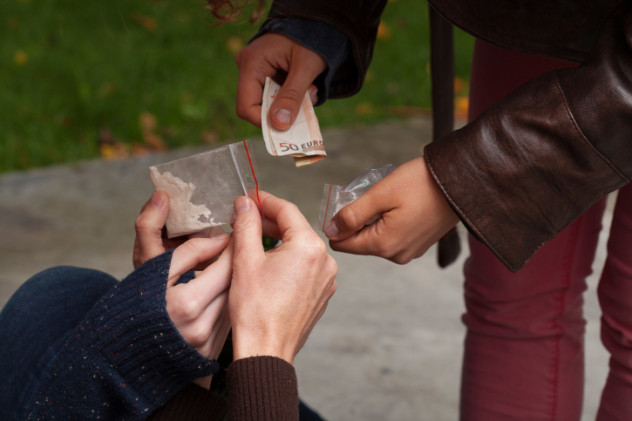
The first thing to understand about living on the streets is that it is an all-cash society. You can’t buy drugs, stolen goods, or quick sex with a debit card. There are no contracts, bills, loans, or interest; nothing is on paper.
There is tons of money floating around on the streets. If you want some of that money you have three options: drugs, sex, or theft. If you supply, steal, or sell these things you will never have to worry about having no cash on hand. Since living with no money (and no home) is the very definition of being a “bum,” this means there is a distinct difference between a street person and a bum; a street person has a hustle while a bum has nothing.
Most times, a street person’s hustle involves drugs, which is the easiest and least risky way to keep yourself alive. You can purchase and sell any type of drug you can imagine on the street, and most street people have a niche drug of choice. Mine, as I said, was morphine.
Morphine led me to slinging pills in Victory Square right next to the Downtown Eastside slums of Vancouver. My “job” consisted of sitting on a park bench and saying “pills” in a voice just loud enough for any passerby to hear and making delivery runs for a dealer.
At any given time, I would have around $100–400 in one pocket, but most of this was not my money. By the end of the day, my other pocket (which held my earnings for the day) had just as much money as the one I reserved for my “boss.”
Within 30 minutes, all the money (usually $100–200) was gone, and my “drug” pocket was now filled with my drugs. Six or so hours later, that pocket was empty, too. Then, I went to sleep for the three or four hours I could sleep a night which would usually be at a shelter, a fellow partyer’s single-room occupancy unit, or my “spot” (an out-of-the-way enclave on the upper level of the Main Street Skytrain station with a concrete floor).
There were countless nights where I could have used the money (sometimes more than $1,000) in my pocket to simply catch a bus to anywhere and leave the life I was leading. I had enough to afford a new apartment, get myself what I needed to find a job, and change. But I didn’t because I actually liked the life I was leading in many ways. It was exciting and nearly effortless, plus I felt intense physical pleasure from drugs each night. A party that lasts as long as you like is not easy to give up.
9You Don’t Necessarily Look Homeless
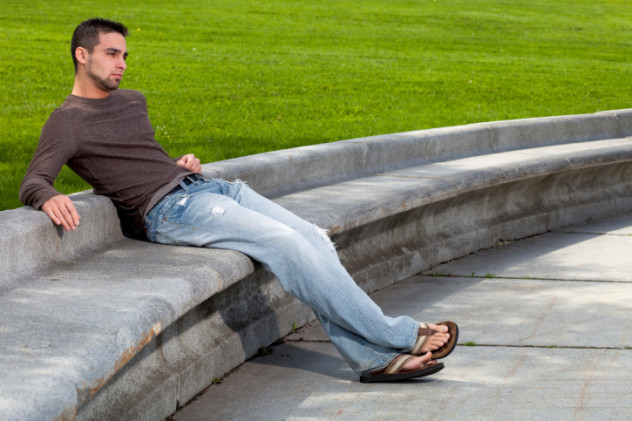
I had all the clothes I ever wanted. Shelters and the Salvation Army provide free clothes for the homeless, and some days I would simply steal a new pair of clothes each day (which was easy). I could shower whenever I wanted by making a quick shop at a shelter. I had deodorant, jewelry, cologne, and clean teeth every day; I dressed better then than I do now.
The people who “look like bums” live like bums even though they don’t have to. They are no different from hoarders or people who are too lazy to shave, shower, and wash their clothes but otherwise lead “normal lives.” In some cases, such as with the mentally disabled, this is obviously not their fault. Many can’t tell reality from fantasy or are so broken in spirit that everything is a struggle. In these cases, washing their clothes (or finding new ones) is not something on their minds.
However, a great deal of “bums” are just that—lazy bums. When you are homeless, you end up knowing and befriending mostly homeless people. You have to because it is part of surviving on the streets. You need a network and a social life even if it is one that would make most shudder. Otherwise, the life will take you down to the point where looking like a bum is not your fault, and you don’t want to go there because it is a one-way trip that you never return from.
8I Didn’t Know Anyone Who Was Starving
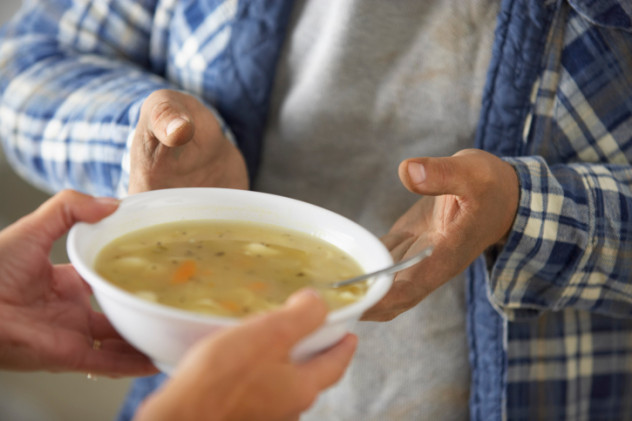
Free food is just about everywhere in many major North American cities, including soup kitchens, meal wagons, food vouchers, and food banks. Any homeless person I knew who had a sign up saying “hungry, please help” was using the money for drugs or booze. Many of these individuals were simply not trusted enough to be dealing or they wished to remain only a buyer.
Social assistance in Canada would also give you a check without a fixed address—a SIN card was enough. In Vancouver, last I knew the monthly payout was around $90. However, you could easily get up to $250 due to how corrupt the system was. In Ontario, you can receive around $250, and in Quebec you can get a whopping $600.
Check or not, food isn’t scarce by any means on the streets. With a check of even $90 on top of handouts, “hungry” homeless people simply did not exist where I was. You always hear stories in the news about how a homeless person was murdered or froze to death outside at night, but you rarely hear of a homeless person starving to death on the street.
7You Can Have As Much Sex As You Want

Homeless people have a lot of sex. As I said above, you don’t necessarily look like a bum if you’re homeless, and a good portion of people who are homeless are actually very attractive. A good portion of those that are homeless are also high, and a party—people have sex at parties—is a party even if it lasts months or years.
Public parks are the worst for this. At night, they can easily become a “kegger” for the homeless. But instead of beer, people usually are on meth, coke, or something else. There is no need to tell you what goes on at these parties (use your imagination). I only need to tell you that they go on every night unless the park is well-patrolled.
Surprisingly, many homeless people also have committed relationships. I knew more homeless people that were attached than single, whether man or woman, gay or straight. Not only is it safer for two people to be outside, but it’s also comforting. You don’t have much, and you go through a lot every day. Having someone with you as a friend and confidant is almost a necessity.
Sex, however, is also a commodity, and the orgasm is a drug itself. “Survival sex” is rampant on the street, and it is usually undertaken by young people. This is where sex is traded for favors such as a place to crash, drugs, a meal, money, or protection. The younger you are, the harder it is to survive on the streets by yourself. The sex trade, and all the ugliness that comes with it, usually turns out to be the only recourse many youth have to survive.
6You Will Steal And Be Stolen From Constantly

This applies to money, drugs, and possessions. Shelters are the worst for this. Unless you find one with a locker that lets you secure your stuff by your bed (or provides a storage room), your things are often gone in the morning if you sleep. But it isn’t only like this in shelters.
The lifestyle is so casual that stealing also becomes casual, and sometimes you even steal from your friends. Those who are homeless due to addiction or who understand addiction realize that the real culprit is the drugs and not the person.
Living with an addiction is living in a state of continual fear of withdrawal. Unless you immerse yourself in the drug scene, which carries a lot of risk from both the law and the scene itself, you will not have enough of an income to support your habit.
The oddest thing about this is that if you get caught and blame it on the drugs, a good portion of the people you steal from will forgive you because they used the same excuse last week when you confronted them about your missing stuff. It is kind of like borrowing without asking first as opposed to stealing. Be a good sport about the whole thing when it’s your turn to be the victim and things will probably work out.
5You Spend A Lot Of Time In Line
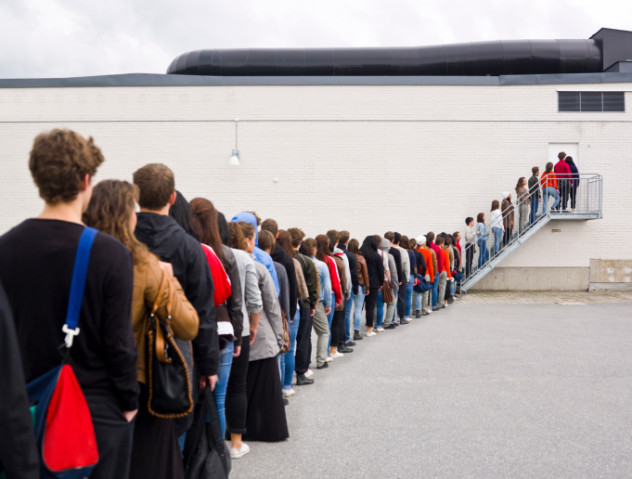
When people say, “Why don’t you just get a job?” there is something they don’t understand about homelessness. Waiting, and a lot of it, is part of the game. If you are not lining up for an hour or so to check into a shelter, you are lining up for 30 minutes to get a free meal or a medical appointment, since sleeping outside means you get sick and hurt a lot. Or you are lining up for free clothes, to get your monthly check, make your next appointment with your social worker, have a shower, use a telephone, or use the Internet.
Waiting in line takes up hours of each day, and it’s a necessity. You are broke either because you have no money in your pocket or you have a lot of money that isn’t yours to spend and replacing it is hard and risky. If you don’t line up then you don’t eat, shower, or have new clothes.
This is the biggest barrier to the homeless getting off the streets. Believe it or not, they simply don’t have the time to find a job or an apartment when taking care of the basic necessities eats up so much of their time. Your only “leisure time” is at night, and how many resumes can you drop off at 1:00 AM?
This quote from a report on homelessness in Seattle gives insight to the situation: “Like many chronic homeless, Don preferred living outside to living in shelters; there was more privacy and freedom. He had used a shelter on Rainer Street for some time. He found that chores, service appointments for food stamps, or getting his wash done at a separate facility would take up most of his day. He would spend so much time surviving and meeting his basic needs, he did not have time to work.”
4There Is A Homeless Hierarchy
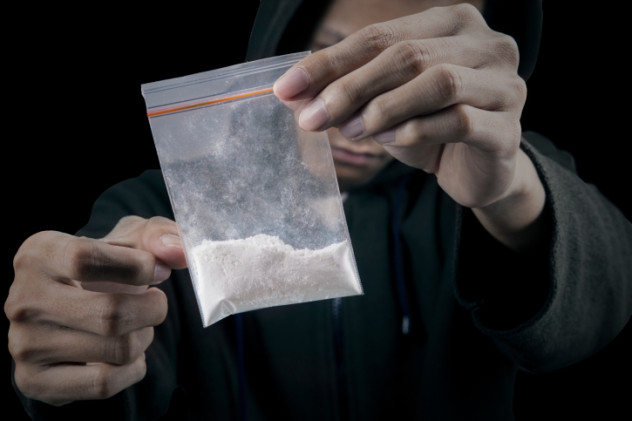
As with any large group of people living in the same place and under the same conditions, a “pecking order” exists among the homeless. However, it differs from normal society a great deal due to the fact that there are more homeless men then women; the hierarchy exists not only vertically but horizontally as well.
In my area, drug suppliers (who provide the pounds of drugs sold on the streets every day) were on top. These people were not homeless, but they ruled the scene because they controlled the drug flow. Their minions were next on the totem pole.
Next came the head dealers who were homeless but connected to the suppliers. They distributed the day’s drugs to those that dealt under them. Then came the “benchers,” sitters, or runners, as they are known. These are the people who street deal and run alone. The only way to rise above this level was to get to know and be trusted by a supplier and to make sure your other head dealers were dealt with before you decided to climb the next rung in the ladder.
Dealing runs by territory and, unless you brought drugs into a new neighborhood (which is risky), you had to wipe out your future competition before you even began to compete. All head dealers are smart enough to run their supply alone, and they usually never let on who their suppliers are so as to preserve their bottleneck of supply.
Horizontally, there were the “girls.” Not all were streetwalkers, and lots of girls were major players in the drug scene, but those that were streetwalkers existed alongside the levels of the hierarchy and were usually the girlfriends of the suppliers or the dealers under them. They usually had just as much power and sway as they men they were attached to.
Also horizontal to the totem pole were the clean alcoholics who did temp work and the like. Believe it or not, no one with any kind of street smarts will let a drunk into the scene because they are continually drunk. Drunk people are not good at crime, and they do not follow orders well or maintain themselves in a responsible manner (such as waiting until night to get drunk). These drunk people are not trusted, but they were not necessarily shunned and still hung out with others in the scene. However, unlike the girls, they had no real power. They were not sleeping with anyone important so the level of trust was not the same.
Then came the real bums. These are the homeless people you see that smell bad, have dirty clothes, missing teeth, and can barely stand up straight. They are shunned by the rest of the scene just as they are shunned from society as a whole. Most of these types are panhandlers who use their earnings to buy booze. This makes sense when you think about it as there is no “underground booze market” on the street. If you want to get drunk, the liquor store is just down the way. Unfortunately, you need money for booze, and you can’t earn money from the scene because no one trusts you. This leads many to beg for it.
Lastly, there are the insane. No one talks to or associates with anyone like this. These people include the guy yelling at a cloud in the sky in the middle of the day. But unlike the “real” bums, they have no friends. In my experience, they were completely alone and hopeless.
3Panhandlers Do Not Make A Lot Of Money
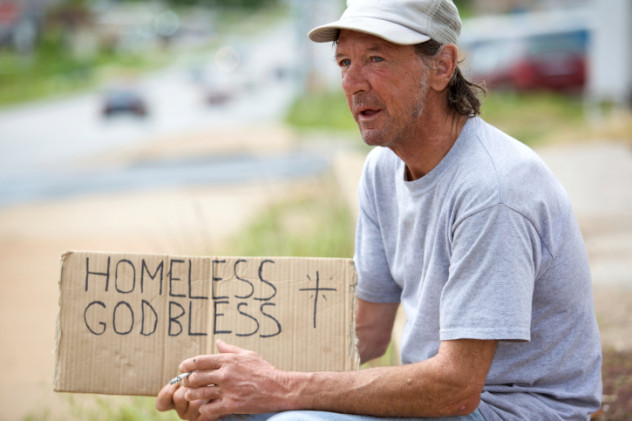
You hear on the news how someone on a street corner can makes hundreds of dollars a day through begging. This is nonsense.
In my experience, many homeless people who panhandle exaggerate their level of income to look more respectable. Defending that lifestyle to someone who doesn’t understand it is difficult and embarrassing, and it’s much easier to say, “Hey, why should I get a job? I make more money this way!”
There are different types of panhandlers. Street performers make around $40–60 on a good day in the summer by playing a musical instrument or performing tricks. Next are the young panhandlers; if they are cute and female they often make about the same kind of money. Lastly, come the real “beggars,” alcoholics and drug addicts who are simply lazy. These people are lucky to end the day with $10–20 which is just enough to get drunk or high on.
Another thing people don’t understand about homelessness is that it runs in a daily cycle. Wake up, get food, clean up, get money, get drugs or alcohol, get messed up, go to bed, and repeat. If panhandlers made hundreds per day, you wouldn’t see them on the street every day panning somewhere as they would have enough money to last a week. You rarely see the same panhandler in the same place day after day for the same reason “guerrilla sales” people hit different areas of town. You need new customers because the old ones dry up; they recognize you because their daily routines intersects= with yours, and after a while they just simply stop giving you money.
2Men Find It Hard To Get Help
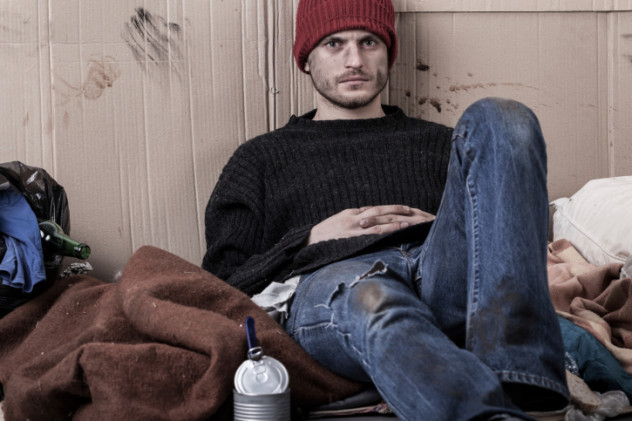
Sexism exists in reverse on the streets. Women have far more social support and options than men do when it comes to rebuilding their lives and getting out from under the trap of being homeless. Men are expected to “work their way out,” which is a lot harder than anyone may think. Unless they are insane or crippled, the support simply is not there beyond the basics that the system provides.
The reverse of this sexism is that women are usually forced to become prostitutes to earn their keep on the streets. The drug scene is simply too violent for many women (though my “boss” was actually a very tough woman). You have to defend turf, you have to be ready to jump someone who stole your stash, and you have to be ready to wrestle with the cops. Women are usually cut out of the scene as dealers. The streets are a war zone in many ways and muscle (or a knife) means something.
1The Authorities Treat You Like Dirt
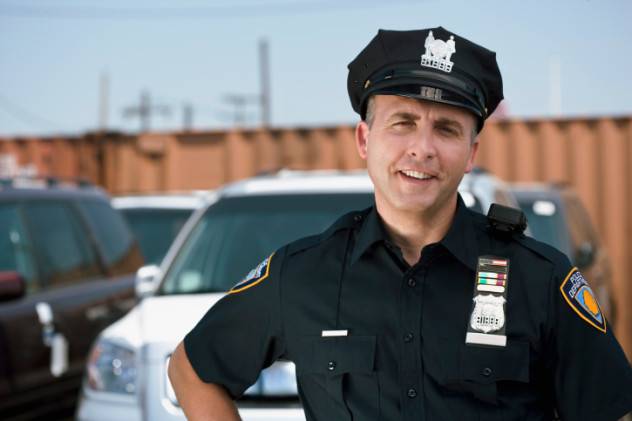
Any homeless person knows that cops are not your friends even if you don’t commit crimes or are not in the scene. Cops have a very broad view of the homeless, and many (especially beat cops) think they are all drug addicts or drunks who are not worth saving and are not worth dealing with in a compassionate manner.
In the Downtown Eastside, for example, agency after agency helps homeless people defend themselves from the authorities legally or through social means. The situation is so bad that you can get a “rights card” you can show to the police if they stop you on the streets. This card spells out your desire not to cooperate with them unless you are arrested and invokes your rights in a statement on the card if you are arrested. It basically says to the police, “Arrest and charge me or you have to let me go right now.”
Every inner city has at least a dozen cops who are just bad seeds. This is the cop who will “arrest” you, take your money, take your drugs, and drive you out to the middle of nowhere to get back on your own if you are lucky. If you are unlucky, you get a beating like I did once. Cops such as these know the position you are in as a homeless person. They also know what they can get away with. If you are a woman in this type of situation, especially if you’re a streetwalker, you might expect to provide some free “services” to get “home.”
Lastly, there are the social workers. They can be just as bad in different ways. Though they do not use force like the police, they do use manipulation. They will withhold checks, bump you out of shelters, force you to go through useless programs, and worse to get side favors from the scene for themselves. Most times they want money, drugs, or sex, but sometimes they abuse others because they think it is funny to make those who are on the streets jump through hoops continually.
Reaching out to the system is necessary to escape from homelessness, but it isn’t an easy solution because the system can be just as bad as the streets.
Our writer was a street person in Vancouver’s Downtown Eastside who would not recommend the lifestyle to anyone.








